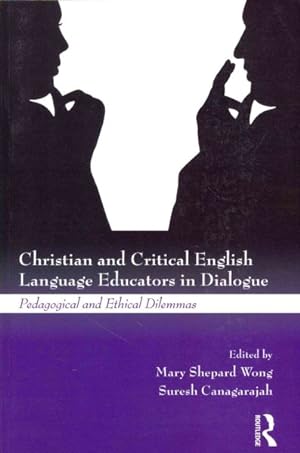The legacy of English teaching and Christian missionaries is a flashpoint within the field of English language teaching. This critical examination of the place of Christianity in the field is unique in presenting the voices of TESOL professionals from a wide range of religious and spiritual perspectives. About half identify themselves as "Christian" while the others identify themselves as Buddhist, atheist, spiritualist, and variations of these and other faiths.
What is common for all the authors is their belief that values have an important place in the classroom. What they disagree on is whether and how spiritual values should find expression in learning and teaching. This volume dramatizes how scholars in the profession wrestle with ideological, pedagogical, and spiritual dilemmas as they seek to understand the place of faith in education. To sustain this conversation, the book is structured dialogically.
Each section includes a set of position chapters in which authors explain their views of faith/pedagogy integration, a set of chapters by authors responding to these positions while articulating their own views on the subject, and discussion questions to engage readers in comparing the positions of all the authors, reflecting on their own experiences and values, and advancing the dialogue in fresh and personal directions.
"Christian and Critical English Language Educators in Dialogue addresses some of the ethical issues considered by TESOL professionals, especially critics of Christian English teachers who engage in teaching English as a means of gaining entry to countries, where Christian missionaries per se are not welcomed, for the purpose of evangelism....This book is helpful in pointing out the struggles of one group of Christian professionals, as they wrestle with this dilemma and with their critics. It can inform us all." --SIL International
"Christian and Critical English Language Educators in Dialogue is an ambitious and effective book, bringing together well-known figures and some who are newer to the field to address topics about which they are passionate. This is a laudable, major accomplishment."--Christian Scholar's Review
"This book is an excellent resource for theorists and practitioners who wish to develop useful, appropriate ways of bringing mindfulness of religious/spiritual perspectives into an ever more inclusive professional discourse, as well as for those who think the whole thing is a terrible idea. All can benefit."--TESOL Quarterly
![]()
